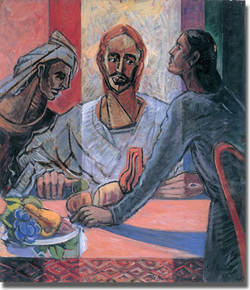 In February I attended a meeting in Preston entitled ‘expanding our horizons in respect of Methodist schools’. The Methodist Church has always believed in the importance of education for all individuals. You may not know that the Methodist Church now has 65 state funded schools in England, although none of them are in Cheshire. Many of these schools are in the most deprived areas of the country. All the schools have a Christian foundation and serve their local community including students of all faiths, or none. In England there is a huge change taking place in the provision of education with a significant reduction in the role of the local authority. The last Labour Government introduced Academies which were formed from schools which were deemed to be failing. These schools required significant investment from sponsors, and were often given new buildings, changes in leadership and a new ethos. The sponsors may or may not have previous experience in education. Schools that are in the most deprived areas are often the ones that are deemed to be failing. If this is a church school and the church is unable to continue to sponsor the school then it will be allocated a different sponsor and will lose its Christian ethos. The present Coalition Government has extended the academy programme with the Academies Act in 2010. Outstanding or Good schools were invited to convert to academy status, and now all schools who are ‘performing well’ can apply for academy status. There is also the opportunity for Free Schools to come into existence, which could be new schools built to fulfil a need in a particular area. The message from the Department for Education seems to be not if schools will convert, but when. So, what difference does this make? The academy receives funding directly from the Department for Education, and loses most of the support previously provided by the local authority. The school sponsor can purchase support from providers other than the local authority. The school sponsor is held accountable for the progress that is made by the students in the academy. There are many secular groups who are prepared to sponsor academies. We need to ask ourselves, as The Methodist Church, where we want to stand in this new landscape of providers? John Wesley saw the provision of Day Schools (in addition to Sunday Schools) as part of the mission of the church. The Methodist Church has always been at the forefront of education, often providing education for the most deprived in society, raising personal expectations and life chances. The development of academies and Free Schools could therefore be seen as an opportunity to further the mission of the church through its work in education. At the meeting we had long discussions about the role that The Methodist Church should take in our new landscape. Should we attempt to become important players in academies and free schools, although their formation may well be against the principals of many Methodists! If we ignore education then are we allowing our schools to become completely secular? Should we actively be seeking out gaps in education provision, and exploring opportunities for ecumenical partnerships? Is this a useful vehicle for our overall mission, especially where more disadvantaged communities exist? Or where the local authority is closing small village schools, might we be pro-active in making proposals to the pressure groups opposing the closures. Alternatively should we be discussing with local authorities or government specific roles The Methodist Church could play in looking for new schooling solutions? These are some of the issues that The Methodist Council and Conference will be discussing over coming months. Please hold them in your prayers as these discussions take place. John Wesley told the first Methodist teachers to always remember that ‘an ounce of love was worth a pound of knowledge’ and his challenge to teacher and pupil alike was this: ‘Do all the good you can By all the means you can In all the ways you can In all the places you can At all the times you can To all the people you can As long as ever you can.’ Patricia Barnard Comments are closed.
|
Pastoral LettersWritten by the Minister & Members
|
 RSS Feed
RSS Feed